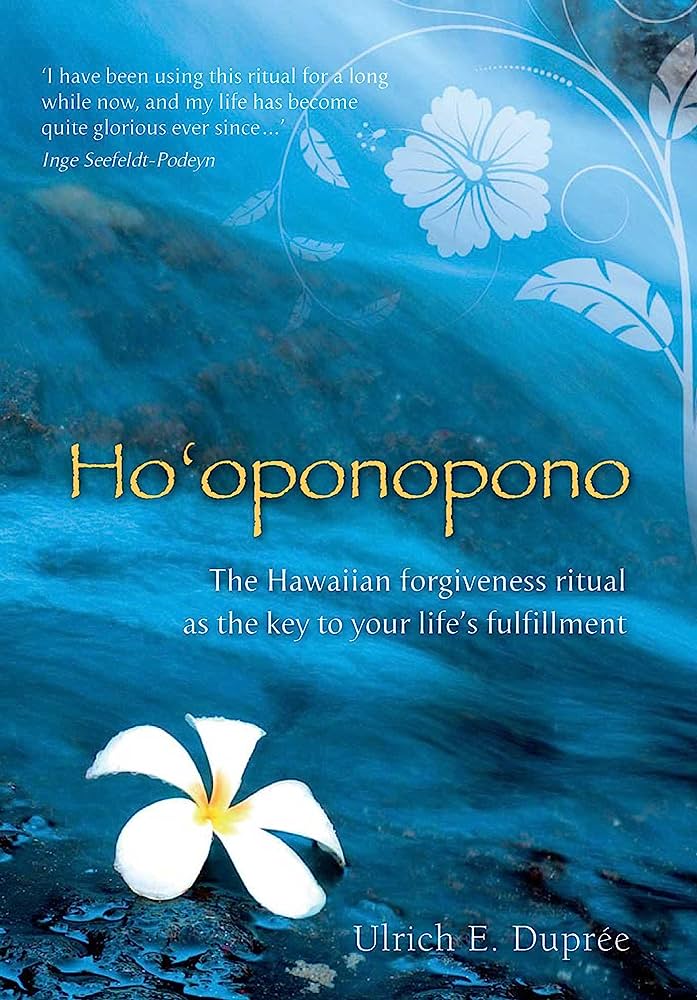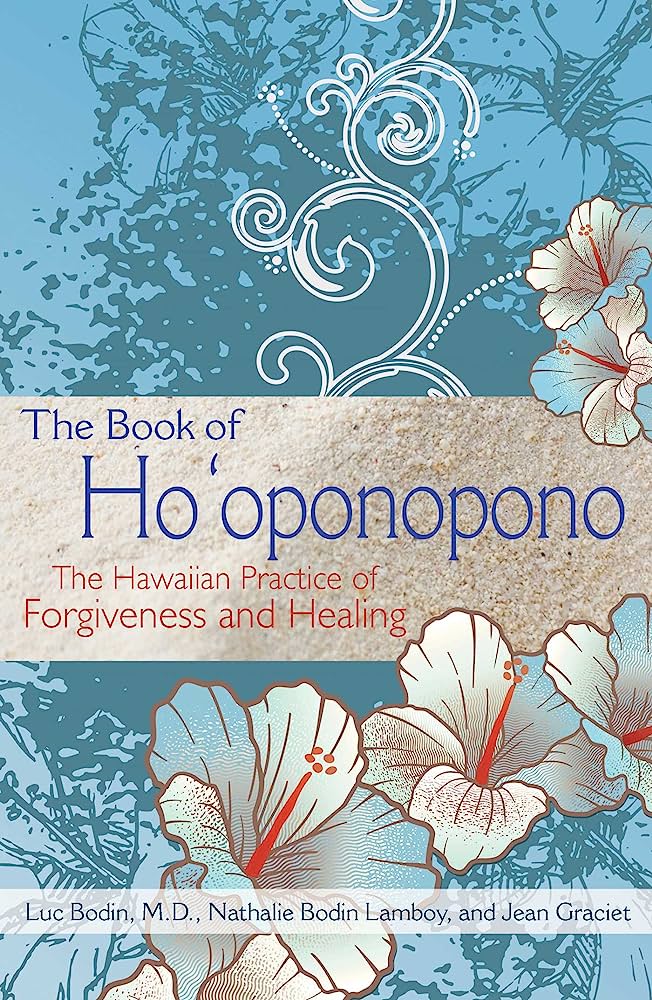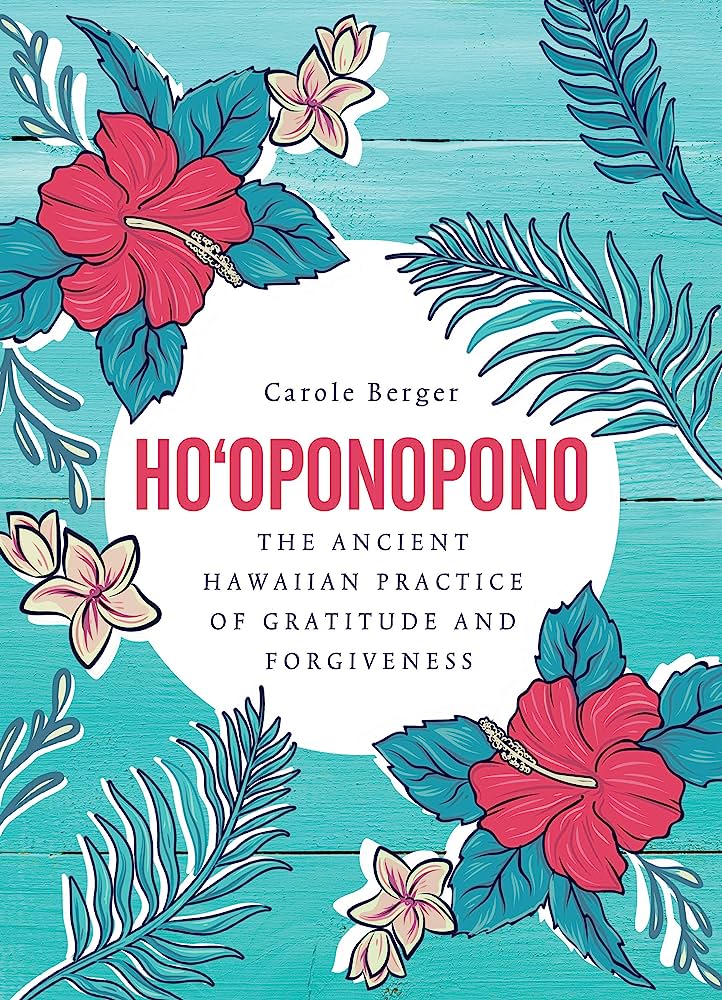So, have you ever heard of this thing called Ho’oponopono? It’s a bit of a mouthful, I know, but trust me, it’s worth knowing about. Ho’oponopono is actually an ancient Hawaiian practice of forgiveness, and boy, does it hold some powerful potential. In fact, it’s been used for centuries as a way to heal relationships, release emotional baggage, and bring about inner peace. Sounds pretty amazing, right?
Let me tell you, diving into the world of Ho’oponopono can be a transformative journey. It’s not just about saying sorry and moving on, oh no. It goes much deeper than that. Ho’oponopono is all about taking full responsibility for our thoughts, beliefs, and actions, and recognizing that we have the power to heal ourselves and our relationships through forgiveness. It’s about cleansing and purifying our inner world, so that our outer world can reflect that harmony and love. In short, it’s about taking charge of our own happiness and finding freedom through forgiveness.
In the following article, we’ll delve further into the principles and practices of Ho’oponopono, exploring its roots in Hawaiian culture and how it can be applied in our modern lives. We’ll discover the four essential phrases of Ho’oponopono and learn how to use them effectively. And most importantly, we’ll uncover the profound benefits that come from embracing forgiveness and letting go of emotional baggage. Trust me, you won’t want to miss this enlightening journey into the ancient Hawaiian art of forgiveness. Get ready to discover the power of Ho’oponopono!

History of Ho’oponopono
Origins of Ho’oponopono
Ho’oponopono is a traditional Hawaiian practice that dates back centuries. Its origins can be traced to the ancient Polynesians who settled in the Hawaiian islands. The word “ho’oponopono” can be broken down into two parts: “ho’o,” which means to make, and “ponopono,” which means right or correct. Together, they convey the idea of making things right or correcting errors.
Development and Evolution of the Practice
Over time, ho’oponopono evolved and adapted to the changing needs of the Hawaiian people. Originally, it was used as a way to resolve conflicts within families, tribes, and communities. The practice involved gathering together and engaging in open and honest communication to address grievances, seek forgiveness, and restore harmony.
As the Hawaiian islands were colonized and its native culture faced suppression, ho’oponopono went through a period of decline. However, in recent decades, there has been a resurgence of interest in this ancient practice. It has gained recognition as a powerful tool for healing and personal growth, not only within the Hawaiian community but also among people from diverse cultural backgrounds.
Understanding Ho’oponopono
Definition of Ho’oponopono
Ho’oponopono is often described as an art of forgiveness and reconciliation. It is a holistic practice that seeks to restore balance and harmony within oneself, relationships, and the community. At its core, ho’oponopono is rooted in the belief that every individual is interconnected and responsible for the well-being of the collective.
Philosophical Principles behind Ho’oponopono
Ho’oponopono is grounded in several philosophical principles that shape its approach to forgiveness and healing. Key among these principles is the understanding that every human being is capable of making mistakes and causing harm. By accepting responsibility for our actions, we take the first step towards healing and transformation.
Another fundamental principle of ho’oponopono is the recognition of the interconnectedness of all beings. It acknowledges that our actions and thoughts have ripple effects that extend beyond ourselves. By seeking forgiveness and making amends, we not only heal ourselves but also contribute to the healing of the collective consciousness.
Principles of Ho’oponopono
Taking Responsibility for One’s Actions
Central to ho’oponopono is the concept of personal responsibility. It emphasizes the importance of acknowledging our mistakes, accepting the consequences, and taking proactive steps towards reconciliation. By taking ownership of our actions, we cultivate self-awareness and cultivate a sense of accountability.
Understanding the Interconnectedness of All Beings
Ho’oponopono recognizes that we are all interconnected, like threads in a tapestry. Our actions, thoughts, and emotions impact not only ourselves but also those around us. By understanding and embracing this interconnectedness, we develop empathy, compassion, and a greater sense of collective responsibility.
The Process of Ho’oponopono
Identifying and Acknowledging Grievances
The first step in the ho’oponopono process is to identify and acknowledge grievances. This involves recognizing any conflicts, hurt feelings, or unresolved issues that may exist within ourselves or in our relationships. It requires a willingness to confront our own emotions and experiences, as well as to listen and empathize with the grievances of others.
The Role of Forgiveness and Reconciliation
Once grievances are acknowledged, ho’oponopono encourages the practice of forgiveness and reconciliation. This involves genuinely apologizing to those we have hurt, seeking forgiveness, and making a sincere commitment to change our behavior. It also requires us to forgive ourselves for our own mistakes and let go of any resentment or negative emotions we may be holding onto.

Ho’oponopono Rituals and Practices
Meditation and Visualization Techniques
Meditation and visualization are integral to the practice of ho’oponopono. Through quiet reflection and visualization exercises, individuals can connect with their inner selves, release negative emotions, and invite healing and forgiveness into their lives. This helps create a clear and calm mind, making it easier to engage in the ho’oponopono process.
Chanting and Prayers in Ho’oponopono
Chanting and prayers play a significant role in ho’oponopono. Certain sacred words or phrases, such as “I’m sorry,” “Please forgive me,” “Thank you,” and “I love you,” are often repeated as a way of expressing remorse, seeking forgiveness, and cultivating love and gratitude. These words hold immense power and are believed to have a transformative effect on both the individual and the collective consciousness.
Benefits of Ho’oponopono
Healing Emotional Wounds and Trauma
Ho’oponopono has the power to facilitate healing and release emotional wounds and trauma. By addressing grievances, seeking forgiveness, and practicing self-compassion, individuals can experience a profound sense of emotional relief and freedom. The process allows for the cultivation of inner peace and the restoration of mental and emotional well-being.
Creating Harmony and Peace Within Oneself
Ho’oponopono is a practice that fosters harmony and peace within oneself. By actively engaging in the process of forgiveness and reconciliation, individuals can let go of resentments, anger, and negative emotions. This creates space for love, compassion, and gratitude to flourish, leading to a deep sense of inner peace and contentment.

Ho’oponopono in Daily Life
Applying Ho’oponopono in Interpersonal Relationships
The principles and practices of ho’oponopono can be applied to various interpersonal relationships. Whether with family members, friends, colleagues, or even strangers, ho’oponopono offers a way to address conflicts, mend relationships, and foster understanding. By taking responsibility for our actions, actively listening, and seeking forgiveness, we can create healthier and more harmonious connections.
Using Ho’oponopono for Personal Growth and Self-Improvement
Ho’oponopono is also a powerful tool for personal growth and self-improvement. By engaging in the process of forgiveness and reconciliation within ourselves, we can let go of limiting beliefs, negative self-talk, and self-sabotaging patterns. This creates space for personal transformation, allowing us to cultivate self-love, self-acceptance, and a renewed sense of purpose and fulfillment.
Scientific Research and Studies
Exploring the Efficacy of Ho’oponopono Through Scientific Investigation
While ho’oponopono is deeply rooted in the spiritual and cultural traditions of Hawaii, there is a growing interest in exploring its efficacy through scientific research. Various studies have examined the effects of forgiveness, meditation, and visualization on mental and emotional well-being, providing empirical evidence for the benefits of ho’oponopono.
Case Studies and Testimonials of Ho’oponopono’s Effectiveness
In addition to scientific research, numerous case studies and testimonials attest to the effectiveness of ho’oponopono. Individuals who have practiced ho’oponopono often report experiencing profound healing, personal transformation, and improved relationships. Their stories serve as powerful reminders of the potential impact of this ancient Hawaiian art of forgiveness.

Criticism and Controversies
Debates Surrounding Cultural Appropriation
As ho’oponopono has gained popularity outside of the Hawaiian community, there are debates and concerns about cultural appropriation. Some argue that the practice should only be taught and practiced by those with a deep understanding and respect for Hawaiian culture. It is important to approach ho’oponopono with cultural sensitivity and to honor its origins and traditions.
Skepticism Regarding the Spiritual Claims of Ho’oponopono
Like any holistic practice, ho’oponopono has faced skepticism and criticism. Some skeptics question the spiritual claims of ho’oponopono, arguing that its benefits can be attributed to other psychological and therapeutic techniques. However, those who have experienced the transformative power of ho’oponopono understand its unique approach and the profound shifts it can facilitate.
Ho’oponopono in Modern Context
Adaptation of Ho’oponopono for Contemporary Challenges
Ho’oponopono has evolved and adapted to address contemporary challenges. It has been integrated into various therapeutic modalities, such as mindfulness-based approaches, trauma-informed practices, and conflict resolution techniques. These adaptations make ho’oponopono more accessible to individuals seeking healing and personal growth in the modern world.
Integration of Ho’oponopono into Alternative Healing Practices
Ho’oponopono has also found its place within the realm of alternative healing practices. It is often combined with other modalities, such as energy healing, acupuncture, and Reiki, to enhance the healing process. The integration of ho’oponopono into these practices highlights its versatility and its ability to complement and enhance other healing modalities.

Cultural Significance of Ho’oponopono
Preservation and Revitalization of Hawaiian Traditions
As ho’oponopono gains global recognition, its cultural significance cannot be overlooked. The practice serves as a means of preserving and revitalizing Hawaiian traditions, keeping alive the wisdom and teachings of the native people. By honoring the cultural roots of ho’oponopono, we contribute to the preservation of Hawaiian heritage and ensure its continuation for future generations.
Ho’oponopono as a Cultural and Spiritual Heritage
Ho’oponopono is not just a spiritual practice but also a cultural heritage of the Hawaiian people. It connects individuals to their ancestral roots, fostering a deeper sense of identity, belonging, and pride in their heritage. By embracing ho’oponopono, individuals can honor the spiritual and cultural traditions of Hawaii and weave them into their own lives.
Prominent Figures in Ho’oponopono
Notable Practitioners and Teachers of Ho’oponopono
Throughout history, there have been notable figures who have played a significant role in the spread and development of ho’oponopono. These include revered kupuna (elders), spiritual leaders, and contemporary practitioners who have dedicated their lives to preserving and sharing the wisdom of ho’oponopono. Their guidance and teachings have been instrumental in keeping the practice alive and relevant.
Their Contributions to the Spread and Development of the Practice
Practitioners and teachers of ho’oponopono have made significant contributions to the spread and development of the practice. They have shared their knowledge and experiences, written books, conducted workshops, and established organizations dedicated to promoting ho’oponopono. Their efforts have helped raise awareness and accessibility to ho’oponopono around the world.
Ethical Considerations in Ho’oponopono
Respecting Cultural Protocols and Traditional Teachings
When engaging with ho’oponopono, it is essential to respect cultural protocols and traditional teachings. This means seeking guidance from knowledgeable practitioners, honoring the rituals and practices associated with ho’oponopono, and approaching the practice with humility and openness. By doing so, we ensure that ho’oponopono is practiced in a culturally sensitive and authentic manner.
Avoiding Commercialization and Exploitation of Ho’oponopono
As ho’oponopono gains popularity, there is a risk of commodification and commercialization. It is crucial to be mindful of this and to ensure that the practice is not exploited for financial gain or diluted of its cultural and spiritual significance. Ho’oponopono should be approached with reverence and a genuine desire for healing, growth, and connection.
Conclusion
Reflecting on the transformative power of ho’oponopono, we can truly discover the ancient Hawaiian art of forgiveness. Through taking responsibility for our actions, understanding the interconnectedness of all beings, and engaging in the process of forgiveness and reconciliation, we embark on a journey of healing, personal growth, and collective well-being. Ho’oponopono offers us a path to inner peace, harmony with others, and the preservation of cultural and spiritual heritage. So, embrace the power of ho’oponopono and let forgiveness pave the way for a brighter and more compassionate future.